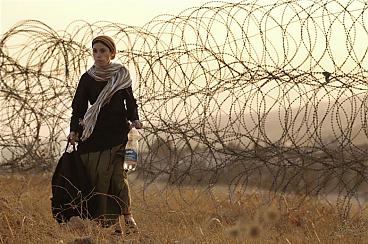Harry van Bommel: Foreign Minister must recognise Palestinian state
Harry van Bommel: Foreign Minister must recognise Palestinian state

Van Bommel: Get serious about a two state solution by recognising Palestine (photo: Rusty Stewart, CC by-nc-nd/2.0)
Good examples should be followed: the Netherlands must emulate other European countries and recognise the Palestinian state, argues Harry van Bommel.
The new centre-left government in Sweden recently made it clear that they wished to recognise Palestine as a sovereign state. The British House of Commons has expressed the same desire. A handful of EU countries, including Hungary, Poland and Slovakia already recognise Palestine, but this dates to before they joined the EU. If the new Swedish government carries out its intention, Sweden will be the first country in its capacity as an EU member state to recognise Palestine. I very much hope that this good example will quickly be followed in Europe, starting with Dutch recognition.
Hope
Outgoing Foreign Minister Frans Timmermans supported recognition of Palestine when he was a backbench Labour MP, but dropped this as soon as he was appointed to the government. Incoming Foreign Minister Bert Koenders was in the past highly regarded as a major supporter of the Palestinian cause and I put my hopes in him. As Minister for Development Cooperation he confronted colleagues in the government over Israel, which he accused of ‘collective punishment’ of the Palestinians in Gaza. As a result of the new political situation in Sweden and the United Kingdom, the debate over recognition of Palestine has reopened. The SP will be proposing that the Netherlands too moves to recognition.
Important treaties
Ever more governments understand that both Israel and the Palestinians could benefit from recognition of a Palestinian state. More than 130 countries have already extended such recognition, but full UN membership must be approved by the Security Council, where the US has been obstructive. Thus for the time being Palestine is stuck with the status of non-member observer state - the status also enjoyed by the Vatican – which it obtained in 2012. This is decidedly more than symbolic. It enables Palestine to accede to international treaties, and in April 2014 it initiated accession to fifteen treaties of importance, including human rights treaties and the Fourth Geneva Convention.
Breaking the Impasse
For the Israeli government there is hardly any real encouragement, let alone a necessity, to negotiate a peace. The Palestinians are divided, Gaza is isolated and the West Bank is effectively under military control. Israel’s biggest ally, the United States, calls regularly for a temporary halt to building in the settlements, but the Netanyahu government finds excuses not to accept this and carries on regardless.
Rights and duties
Firstly, formal recognition of the Palestinian state would put an end to the imbalanced political relations in the Israeli-Palestinian conflict. Negotiations between what are from every point of view unequal interlocutors have turned out in practice to lead nowhere. Recognition of the Palestinian state and accession to important international treaties, such as the Geneva Convention, give the Palestinians clear rights and duties, which is also in Israel’s interest. From the Palestinians can be demanded that they act effectively against terrorist attacks on Israel.
Secondly, recognition of the Palestinian state would reinforce the principle that the 1967 demarcation line must form the border for such a state. That could possibly be complemented by an exchange of territories. This 1967 border has been accepted in principle in earlier agreements and is accepted by the Netherlands, the EU and the UN as an important aim of the peace process. President Obama has explicitly called the 1967 border a starting point for negotiations.
Two-state solution
Waiting for an all-embracing peace agreement, as advocated by the Dutch government, is not an option. As things stand a two-state solution is sinking ever further below the horizon, despite the fact that it is the only solution. Amongst Israeli politicians too I detect a feeling that a two-state solution is the only way to preserve Israeli democracy. To wait longer for this solution thus also represents a threat to democracy in Israel. That is in practice visible in recent legislation which attempts to put serious difficulties in the way of Israeli human rights groups and other critical NGOs.
Serious efforts
The Dutch government must not ignore these important arguments for the recognition of the Palestinian state on the grounds of friendship with Israel. That friendship would be most sincerely expressed in support for peace and democracy in the Middle East. Now that it still appears likely that this can be achieved, serious efforts must be made towards a two-state solution via formal recognition of Palestine, including as a full member of the UN. I have high expectations of the new Foreign Minister Bert Koenders and hope that he will bring the recognition of the Palestiniaan state closer.
This opinion article first appeared, in the original Dutch, weekly Catholic newspaper Katholiek Nieuwsblad.
